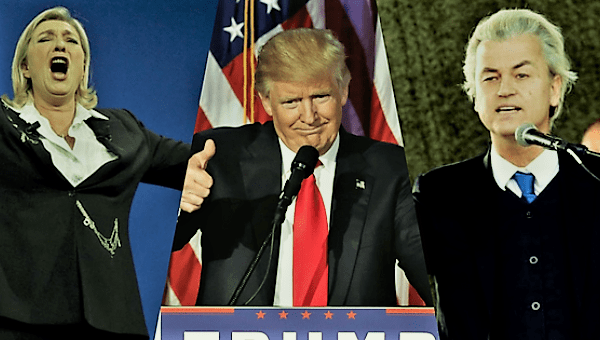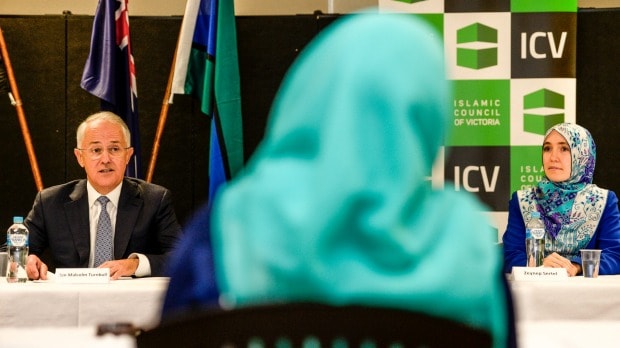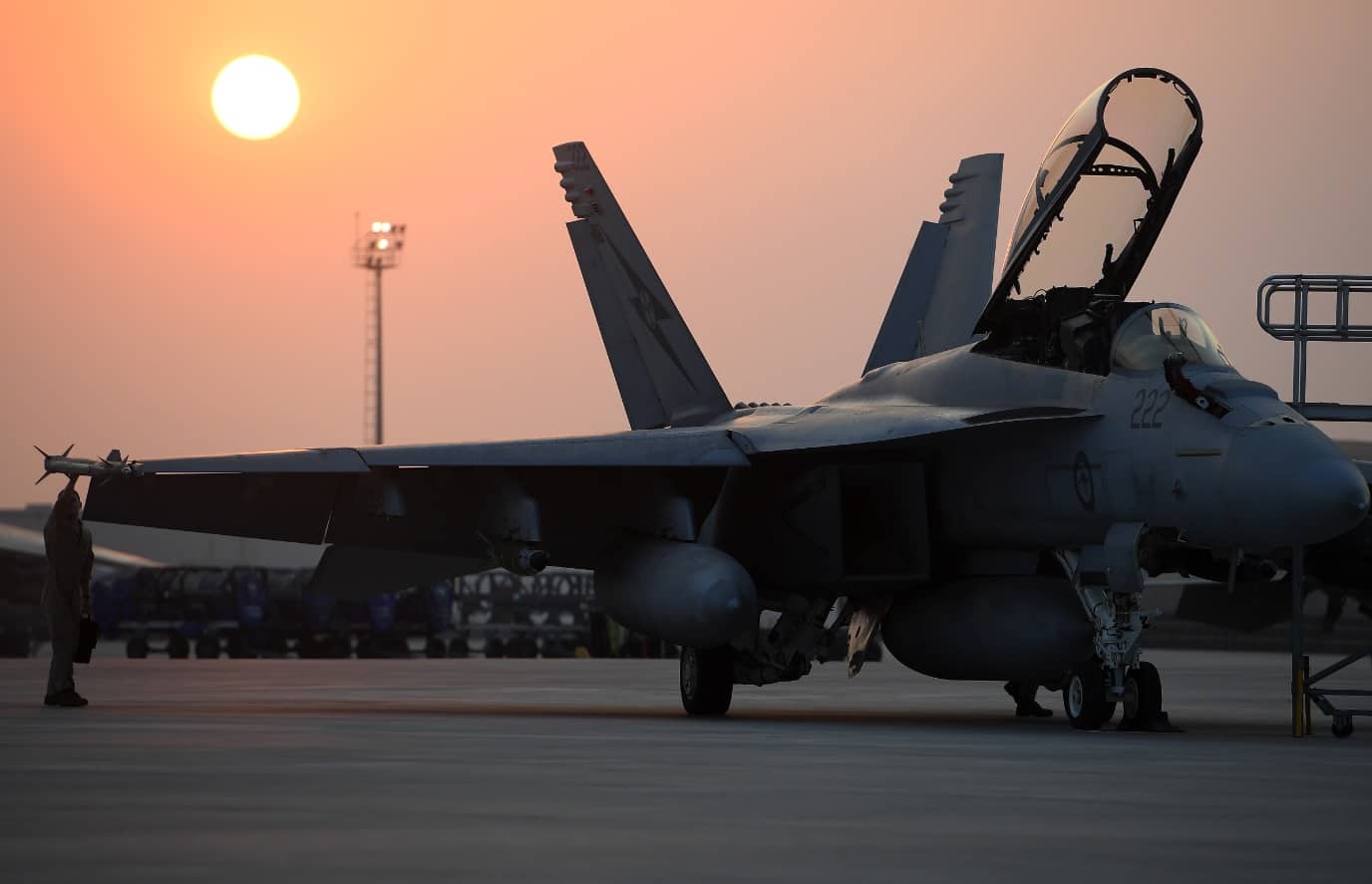Is the rise of the far-right in Australia and other Western nations really and simply a rise of the “fringe”, or does the mainstream enable and effectively encourage the proliferation of this “new” phenomenon? Brother Shafiul Haq explains.
The Encyclopaedia of Politics: The Left and The Right associates the concept of “political correctness” with the political Left. During the 1960s, the New Left used the term to establish lines between what was seen as offensive and what was not. Since the 1980s, the term has been used by the Right in a derogatory sense to refer to the policing of language to hide inconvenient truths.
Just a day after Donald Trump was sworn in as U.S. president, far-right leaders from Germany, France, Italy and Netherlands met in the German city of Koblenz to deliver a wake-up call to Europe. The Dutch far-right leader Geert Wilders, who wants to ban the Qur’an and shut down mosques, said in the conference:
Yesterday, a new America. Today, hello Koblenz, a new Europe!
The people of the West are awakening. They are throwing off the yoke of political correctness.
Donald Trump said after the Orlando shooting:
They [Clinton and Obama] have put political correctness above common sense, above your safety, and above all else. I refuse to be politically correct.
Hence, when a Muslim woman asked him about rising Islamophobia during a presidential debate, he was quite blunt in his response. He said “there’s always a reason for everything”:
…we could be very politically correct, but whether we like it or not, there is a problem…
Now, to solve a problem, you have to be able to state what the problem is or at least say the name. She [Clinton] won’t say the name and President Obama won’t say the name. But the name is there. It’s radical Islamic terror.
Political correctness apparently censors any discussion on real problems facing the West. And some of these problems seem to be related to the presence of Muslims in the West: Muslims are a security threat; Muslims are imposing their culture; Muslims do not want to integrate, and so on and so forth.

Europes populists met in Koblenz in January after Trump was sworn in to give europe a “wake-up call”
Many outspoken Western politicians now seem to be challenging this silence and are speaking out about these issues openly and frankly.
Trump’s chief strategist Steve Bannon said in 2014:
If you look back at the long history of the Judeo-Christian West struggle against Islam, I believe that our forefathers kept their stance, and I think they did the right thing…
…it is a crisis, and it’s not going away…we’re in a war of immense proportions.
Marine Le Pen said regarding the hijab:
I’m opposed to wearing headscarves in public places. That’s not France. There’s something I just don’t understand: the people who come to France, why would they want to change France, to live in France the same way they lived back home?
Steeve Briois, the Vice President of the National Front, said that Le Pen’s administration would be open to a Muslim ban:
And why not? We are no longer in the world of the Care Bears. We are in a horrible world, so sometimes you have to take measures of authority, even if it shocks.
In Australia, Pauline Hanson has made many a vile comment about Islam and Muslims:
- “We are in danger of being swamped by Muslims who bear a culture and ideology that is incompatible with our own.”
- “Islam cannot have a significant presence in Australia if we are to live in an open, secular and cohesive society”
- “Islam is a disease; we need to vaccinate ourselves against that.”
She even calls for “surveillance cameras to be installed in all Mosques and schools.”
Quite clearly these politicians have made Muslims out to be one of the biggest problems facing the West, and the popularity of these politicians seems to hinge on such anti-Muslim rhetoric.
But why do such politicians have so much traction these days?
Perhaps they offer some certainty to a population growing increasingly disenchanted by the mainstream political establishment. And this disillusionment comes in the backdrop of significant structural deterioration of the West.
The “crisis of legitimacy” in Western societies
Charles Lemert, a leading social theorist of our times, says:
…the interests of capitalism as a world-system for the extraction of surplus value on the basis of stolen resources and impoverished cheap labour required a culture that would make the world appear seamlessly honourable and morally proper.
This culture is modernism with its belief in human progress.
Just as modern science holds humans to have evolved from apes, modernism as a cultural theory holds human societies to also be in a process of evolution, the most advanced civilisational form of which is manifested in the modern West.
Therefore, the culture that was required by the structural conditions created by capitalism was modernism, which tells us the story of human progress heralded by the West.
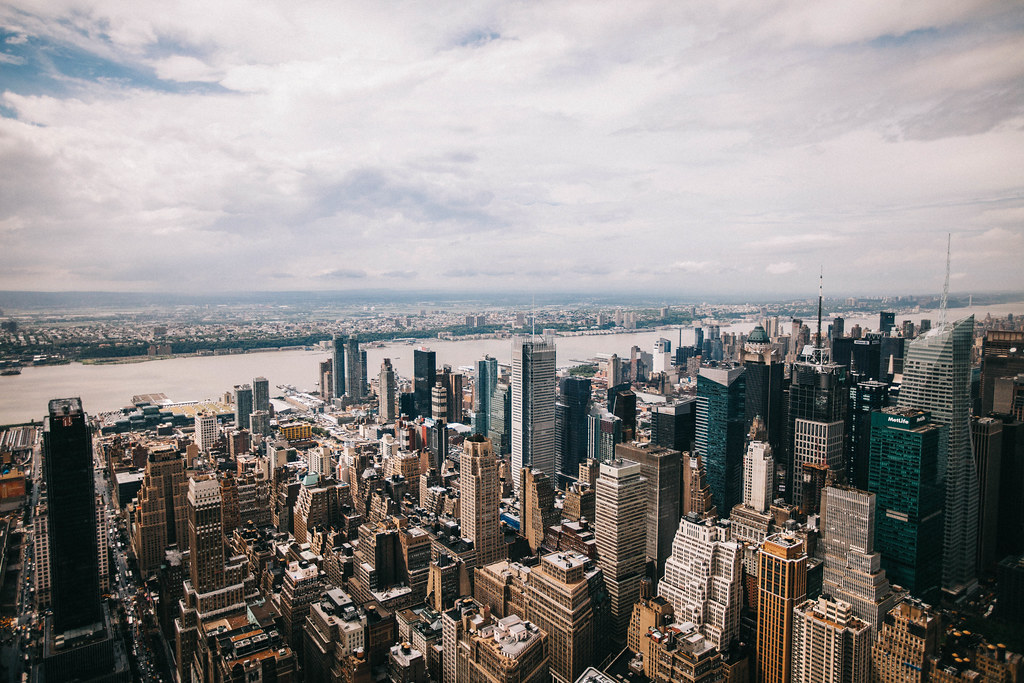
Modernism as a cultural theory holds human societies to be in process of evolution, the most advanced form of which is manifested in today’s West.
In Lemert’s words, “…the reality of things is that things can and will get better.”
However, Lemert says that our global realities increasingly bring to question the modern culture’s progressive ideal. Is the world really a better place, and is it really getting progressively better?
Globalisation has exacerbated the gulf between the have’s and the have-nots. And this divide does not merely exist between the rich and the poor countries, but even within the population of the wealthy countries themselves.
For example, one of the poorest towns in France is Roubaix. Some 40,000 (45%) of the city’s total population of 95000 live below the poverty threshold of €1,008 a month.
The unemployment rate is over 30% compared to the national average of 10%. Whereas, this town used to be the centre of France’s thriving textiles industry. But the factories have shut down since the 1970s due to foreign competition.
Even in Australia, today, 748,000 people are unemployed and 1.1 million are underemployed with not enough hours of work available.
According to Professor John Buchanan of the University of Sydney, “Underemployment has been slowly ratcheting up. It is not just cyclical, it is structural.”
Lemert says that there is of course a difference between the poor in the West and the poor in, say, Africa. But even this gap is gradually closing. And many within wealthy Western nations are increasingly pushed to suffer on margins that they never would have thought possible.
Therefore, with deteriorating economic and social conditions, there is increasing resentment among the people towards the political establishment. In a paper on the rise of the far-right published back in 2003, the author, Piero Ignazi, said that there was a “crisis of legitimacy” in Western societies. He said that there was a link between the decline of confidence in the system, produced by the conditions resulting from post-industrialisation, and the performance of the extreme right, because these parties demonstrate an anti-system culture, although they do not overtly stipulate anti-democratic proposals.
Interestingly, he also mentions that while 95% of people across Western Europe accept democracy as an ideal political system, only 57% are actually satisfied with the workings of democracy. And less than half of the public in the countries surveyed expresses confidence in the national legislature.
Democracy as an ideal system receives almost unanimous support, but people are highly critical of political institutions and system performance.
And the low confidence in the system continues to this day. In the recent French elections, the voter turn-out was only 65.3%, the lowest since 1981.
It is under these circumstances that politicians like Trump, Le Pen and Hanson capitalise on such public sentiments with their anti-immigration, anti-globalisation, anti-establishment kind of rhetoric.
For example, Marine Le Pen said in an interview:
Globalization has become an ideology with no constraints. And now, nations are forcing themselves back into the debate. Nations with borders we control, with people that we listen to, with real economies, not Wall Street economies, but rather factories and farmers. And this goes against this unregulated globalization, wild, savage globalization.
In the US, between 2000 and 2010, manufacturing jobs fell from 17 million to 11 million! Many manufacturing companies continue to move their operations out of the US to countries with cheaper labour. Many of those who have lost or fear losing their jobs have voted for Trump for his protectionist and anti-free-trade stance.
“Post-politics” Vs. Populism
According to prominent contemporary philosopher Slavoj Žižek, “politics proper” has largely disappeared from the West, and has been replaced by, what he calls, “post-politics”. The “post-political” represents a more or less conflict-free “collaboration of enlightened technocrats (economists, public opinion specialists) and liberal multiculturalists” who attempt to engineer a pseudo-national consensus by negotiating a series of compromises. Therefore, politics is reduced to the mere regulation and negotiation of particular interests of different social groups within the broad parameters of a social, political and economic status quo, which, in themselves, remain largely unchallenged.
As mentioned in the previous section, there is, however, growing discontent among the people with the status quo, and the far-right, as a populist movement, seems to offer an anti-establishment voice for the people to vent their frustration. However, although the far-right’s rhetoric is anti-establishment, their politics, yet again, is superficial because “for a populist, the cause of the troubles is ultimately never the system as such, but the intruder who corrupted it…”
That is why we hear specific groups (e.g. immigrants, Muslims etc.) being explicitly identified as the threat to society in the far-right discourse transgressing all boundaries of “political correctness”. Such explicit political incorrectness of right-wing populism, although ostensibly rejected by the mainstream, does on many occasions set the agenda for the government’s policy-making.

There is growing discontent among the people with the status quo, and the far-right, as a populist movement, seems to offer an anti-establishment voice for people to vent their frustration. The recent happenings around Brexit are an example of this.
Žižek articulates the logic of such reactionary politics in these words:
…while rejecting the populist hatred of the immigrants, we have to admit they are addressing issues which really worry people, so we should take care of the problem, introduce tougher immigration and anti-crime measures…
We see plenty of examples of such politicking here in Australia. While the current Liberal government has not yet explicitly called for a Trump-style “Muslim ban” (unlike Pauline Hanson), it has inserted specific questions in the recently revamped citizenship test that seem to be aimed at Muslims, thus reinforcing the notion that the presence of Muslims in Australia needs to be specifically controlled.
While Prime Minister Malcolm Turnbull has many good things to say about Islam and Muslims (unlike Hanson who has a problem with the teachings of Islam itself), it is under his leadership that deradicalisation programs continue to be rolled out in schools that police the “devoutness regarding religious beliefs” of Muslim youth, essentially stigmatising Muslims for practising their faith.
While these are some of the ways in which the far-right and the mainstream supplement each other, in order to specifically understand the issue of growing anti-Muslim sentiments in the West, we must look at it in the context of the global war on terror.
The war-on-terror and rising anti-Muslim sentiments
We must understand very clearly that it is not the anti-Muslim rhetoric of the far-right that causes all the hatred against Muslims.
One of the major reasons for the rising hatred against Muslims is the climate of fear created by mainstream political parties themselves of whichever orientation – left, right or centre!
In the war-on-terror context, Muslims collectively have been painted with the broad brush of terrorism and criminality, and have been targeted as enemies. The far-right merely takes advantage of this fear, and exacerbates it further.
To understand this point, let us consider the very epitome of political correctness – Barack Obama. During Obama’s presidency, he was repeatedly criticised for refusing to use the term “Islamic terrorism”. His reply was as below:
…they [terrorists] have perverted and distorted and tried to claim the mantle of Islam for an excuse for basically barbarism. What I have been careful about … is to not lump these murderers into the billion Muslims that exist around the world, including in this country, who are peaceful … who are fellow troops and police officers and fire fighters and teachers and neighbors and friends.
At least outwardly Obama seems to be cautious not to portray all Muslims as “terrorists”. But one only needs to look at his drone programs to realise that the policies governing drone operations are a far cry from the very reasonable-sounding words of Obama.
In 2016 alone, the U.S. carried out 26,172 airstrikes on seven Muslim countries, which amounts to 3 strikes per hour. And these figures are conservative because reliable data is not available for airstrikes in all of these countries. Also, a single “strike”, as per the Pentagon’s definition, can actually involve multiple airstrikes dropping dozens of bombs targeting multiple sites.
Despite dropping a minimum of 3 bombs an hour, the Obama administration claimed it had only killed between 64 and 116 civilians during the entire 8-year period it had been in office.

Outwardly, Obama is careful in how he portrays Muslims, but his Drone program boasts a significantly violent record.
One of the reasons why the count of civilian casualties is so low is because of the way that the Obama administration defined a “combatant”. A New York Times report stated that the US “in effect counts all military-age males in a strike zone as combatants…unless there is explicit intelligence posthumously proving them innocent.”
Hence, if you are targeted by U.S. drones, you are guilty unless posthumously proven innocent!
One is not necessarily drone-struck for being a “terrorist”. Rather one posthumously becomes a “terrorist” for dying in a drone strike. What a perverted logic!
So the US drone program does not distinguish between “combatants” and “civilians”, or in Obama’s words, the “murderers” and the “billion Muslims…who are peaceful”. The drone program, in fact, treats all Muslims as “murderers”, “combatants” and “terrorists”.
Another tragic example to highlight this point is the death of Anwar al-Awlaki’s 16-year old son Abdulrahman, who was killed in a drone strike in Yemen. He had no links to any “terrorist” organisations. Yet, when asked why Abdulrahman was killed, former White House press secretary Robert Gibbs justified the killing in these words:
I would suggest that you should have a far more responsible father if they are truly concerned about the well-being of their children. I don’t think becoming an al Qaeda jihadist terrorist is the best way to go about doing your business.
Abdulrahman was killed because he was guilty of having the wrong father. This is yet another tragic reminder for us that in the war-on-terror, every Muslim is a target.
Yet, a Pew Research Centre survey has shown that 58% of Americans support drone strikes. So the majority of Americans support a program that indiscriminately kills Muslims!
But how did it come to this? It is because the artificial distinction made between the “good” Muslim and the “bad” Muslim, in order to maintain some semblance of political correctness, essentially criminalises all Muslims.
Mahmoud Mamdani makes a very important point regarding this artificial distinction between “good” Muslims and “bad” Muslims:
… “bad Muslims” were clearly responsible for terrorism… “good Muslims” were anxious to clear their names and consciences of this horrible crime and would undoubtedly support “us” in a war against “them.” But this could not hide the central message of such discourse: unless proved to be “good,” every Muslim was presumed to be “bad” … Judgments of “good” and “bad” refer to Muslim political identities, not to cultural or religious ones.
That should remind us of Pauline Hanson’s remark that one could not tell a “good” Muslim from a “bad” one. This is precisely the logic that underpins the war-on-terror and the concomitant anti-terror laws, counter-extremism policies, de-radicalisation programs etc.

The artificial distinction between the “good” muslims and the “bad” muslims puts all muslims under interrogation.
Yet Hanson’s comment caused much controversy and even Malcolm Turnbull “rejected” her views on Muslims. But it is easy to be shocked and offended by the Islamophobic rhetoric of the far-right while ignoring the actual crimes against Muslims committed by mainstream political parties:
- It was Turnbull’s party, under the leadership of John Howard, that joined the war-on-terror and destroyed an entire nation based on a lie, which Howard dismisses as “errors in intelligence”.
- It was under the Howard government that the Dr Haneef fiasco took place, which John Howard and then Immigration Minister Kevin Andrews decided to politicise even before investigations were concluded.
- It was the Liberal Party that introduced the draconian anti-terror laws, which was further strengthened by Labour.
- It is the current Immigration Minister Peter Dutton who said it was a mistake to allow Lebanese Muslims to come to Australia.
- Regarding Trump’s “Muslim ban”, Treasurer Scott Morrison said the world was “catching up to Australia”!
- Foreign Minister Julie Bishop said that the Turnbull government would support the U.S. in implementing its “strong immigration and border protection policies”.
- There is bi-partisan support for the war-on-terror and everything that follows from it such as the anti-terror laws, de-radicalisation programs etc.
- Hizb ut-Tahrir ran an entire campaign on the issue of counter-extremism during which we heard harrowing testimonies from members of the community on how their homes were raided by authorities, how they have been harassed by ASIO, and how their family members were unjustly detained. All of these happened under the leadership of the mainstream parties, rather than the far-right.
Therefore the anti-Muslim atmosphere has been created and continues to be fostered by the mainstream. The far-right merely feeds off it and takes it to its logical conclusion – that Muslims are the problem and must be banned along with their practices, dress code, food, mosques and even the Qur’an!
The difference between the far-right and the mainstream is primarily at the level of rhetoric, and they both seem to supplement each other in different ways. It is due to the structural deterioration of the West under the “post-political” administration of the mainstream that the far-right finds traction. On the other hand, it is due to the hate-filled rhetoric and political incorrectness of the far-right that the mainstream seems relatively mild and tolerant, while it pursues policies not necessarily fundamentally different to those espoused by the far-right.
What does this mean for Muslim activism?
Given the current climate of rising Islamophobia, it is easy for our focus to be diverted to certain politicians or parties who are explicitly anti-Muslim, rather than to bigger underlying issues that have been persisting for much longer than the rise of Trump and his likes to popularity.
As an example, earlier this year, many Muslims in the U.S. came out in protest against Trump’s “Muslim ban”. Muslims flocked the airports and the streets holding placards and chanting slogans. The air was filled with emotions, both of angst and disgust at Trump, but also of cooperation and camaraderie with those of other faiths who stood with Muslims.
During these protests, there was a particular Friday sermon delivered at the JFK airport that attracted some positive media attention. The Imam said during the khutbah:
We are now in a time in which we must defend the immigrants to our nation, all immigrants, not just Muslim immigrants. We have to stand against injustice for all immigrants. There will be great court battles coming, demonstrations in the street coming. There is going to be more activism in the halls of government coming.
While such a stance against any form of injustice is praiseworthy, there, unfortunately, was a stark omission that makes such activism problematic.
Around Fajr-time on Sunday 29th of January, U.S. forces carried out a commando raid in Yemen, the first one ordered by Trump. They killed several civilians including an 8-year old girl, Nawar al-Awlaki, the daughter of Anwar al-Awlaki. The public khutbah at JFK was delivered the following Friday, less than a week since the raid. Yet, while threats were made of “more activism in the halls of government coming”, there was not a single mention of Nawar. Instead, the Imam had this to say:
Now we have to come together, and band together and unite together and support one another in the common cause of establishing America as a beloved community.
Eight-year-old Nawar gradually bled to death over two hours from a bullet wound in her neck. But all that the Imam could care about was the myopic struggle to, essentially, make America great again.
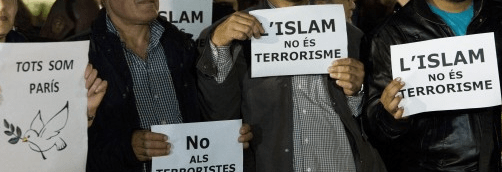
Any political practice that is oblivious to the conditions of oppression globally, and does not account responsibility where it truly lies, is not a politics worth our time.
Therefore, while the rise of extreme right-wing politicians and parties is a concerning trend, our activism cannot be focused solely on countering their hate-filled statements and policies.
As Muslims in the West, we have the unique opportunity to be the voice of our brothers and sisters who are oppressed overseas and to break the silence that masks their suffering. Any political practice that is oblivious to their conditions and does nothing to at least hold the Western governments to account for their violence, to account responsibility wherever it truly lies, is not a politics worth our time.
Shafiul Huq is a Melbourne-based activist and member of Hizb ut-Tahrir. He is also a student of Classical Arabic and Cultural Studies.
![]()










